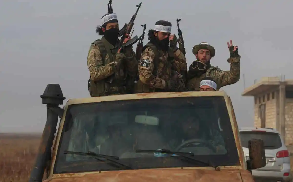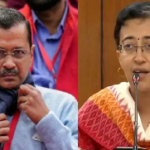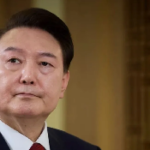After more than half a century, the autocratic rule of the Al Assad family along with the 13-year-old civil war came to an end in Syria, the question being asked is: will the country slip into the fundamentalist Islamist regime influenced by Al Qaeda, Islamic State, or the Taliban?
Will the new dispensation form an inclusive and diversified government representing all ideologies, religions, nationalities and communities? Equally important is the question: what can India do.
Bashar Al Assad Returns As Popular President
Deposed Syrian President Bashar al Assad, who fled the country and got asylum in Russia has a checkered history and interesting part. The second son of Hafiz al Assad, who became president of the country in 1971, was trained as an ophthalmologist.
After his father’s death in 2000, Bashar returned to Syria to take the mantle left by his father. With him, he brought a new wind of openness and modernity, as he mingled with the masses and tried to portray himself as one of them, something unimaginable in the conservative country’s autocratic and despotic rule.
The trained eye expert also opened the economy to some extent inviting foreign investment and encouraging the private sector to do more.
Open Economy Triggers Demand For Political Reforms
Soon, the economy of this Middle- Eastern country improved, and a new middle class with increased purchasing power emerged.
However, as it happens most of the time, economic ambition also encouraged the people to demand more political freedom and reform in the system, which was by and large autocratic, moribund and out of sync with the changed ground realities.
Bashar al-Assad refused to carry out political reforms, loosen his grip over governance and share space with people of different political thoughts. He crushed the dissent. A once immensely popular ruler was accused of rigging elections, which most of the people and observers rejected as a sham.
Bashar’s Stubbornness Paves Way For Civil War
It led to the beginning of the civil war in 2011, Assad government tried to crush it with iron fist. He went to the extent of using chemical weapons against his own people, according to the media reports.
The Shia ruler of a largely Sunni-dominated country received the support of the Shiite country of Iran and Shiite militant outfit of Hezbollah.
Iran, Hezbollah, Russia Tip Scale
Determined to regain the glory and significance of the old Soviet days, Russia under Vladimir Putin, saw an opportunity to grab a foothold in the Middle East.
However, time changed and so did the ground realities. Bombed by Israel several times amid a crippled economy due to the sanctions imposed by the US and the EU, Tehran washed its hand off when the Hayat Tahrir al-Sham-led guerillas marched ahead to capture Homes, Aleppo, Idlib and reached within striking distance of the capital Damascus.
Tehran, Moscow Jettison Syria
Similarly, caught in an internecine war that went beyond the time frame earlier planned, and suffering many reverses particularly in the Kursk Oblast, Russia decided to look the other way. Moscow refused to send more troops to Syria, though it granted asylum to Bashar al-Assad and his family after they reached there uninvited.
Syria stands at a crossroads and it will have to ponder what way forward it chooses once the euphoria is over and the dust settles down.
What Is Hayat Tahrir Al Sham?
What began as an offshoot of Islamic State, the HTS soon declared its independence from a fundamentalist Islamist outfit. Its leader Abu Mohammad al Jawlini disavowed IS leader Abu Bakr al Baghdadi and praised Al Qaeda leader Ayman al Jawahiri. This alliance too proved short-lived as the HTS soon broke all ties with the Taliban.
The Hayat Tahrir al-Sham underwent drastic changes, it turned nationalist, stopped talking about fundamentalist Islam, jettisoned the concept of Khilafat and tried to portray itself as inclusive and diversified.
Will HTS Quit Fundamentalist Islam?
Abu Mohammad al Jawlini all assured the minorities of protecting their lives, properties and right to religious freedom. After capturing power in Damascus recently, he called it the victory of all Syrians.
However, political analysts believe, Syria’s immediate political future depends not only on the intentions and capabilities of the HTS but also on other groups with pockets of influence in different parts of the country and the major outside powers that have been most closely involved in the country.
India Sits With Fingers Crossed
With its fingers crossed and watching it from a distance stoically till now, India has limited options to interfere at the present juncture.
India has to move with extra caution also because of the checkered past of the HTS. Though the outfit has changed its colours, it cannot be ruled out that after assuming power and being challenged by the nationalists, pushing for more political space, the outfit returns to its roots and adopts a fundamentalist approach more vigorously.
New Delhi does not want to burn its bridges with Iran despite recently developed hiccups, it also cannot antagonize Russia as it has shown during the Ukraine War.
On the other hand, New Delhi also has to keep the US, the European countries, and other players of the Middle East in good humour.
India can neither appear to support a fundamentalist Islamic outfit nor be in oblivion keeping its eyes closed, and ignoring the ground realities.
With its newly found affinity with Israel, and the reported backing of Turkey (Turkiye) to the HTS, New Delhi has to keep all options open and adopt the policy of wait and watch till the dust settles.
India may also have to see how the political process in Syria unfolds, Kurds and other players of the Free Syrian Army from the southern towns and cities move forward and demand their chunks in the possible power structure.
India will have to wait.



